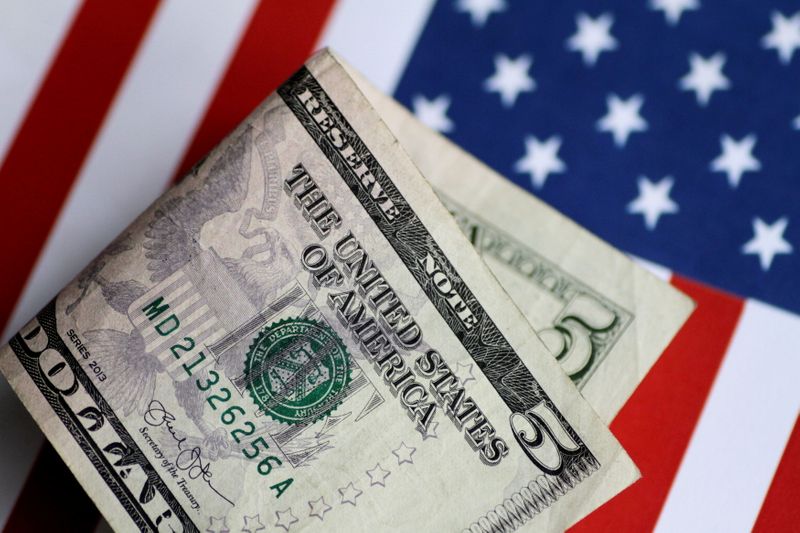By David Henry
NEW YORK (Reuters) - The U.S. dollar steadied on Tuesday, after having lost value against the Japanese yen and Swiss franc, as questions about slowing U.S. economic growth and the COVID-19 Delta variant challenged risk appetite.
The U.S. dollar dipped below 109 yen, and for a second day gave up as much as 0.4% before recovering half of the day's loss to 109.1 yen.
It traded against the Swiss franc as much as 0.3% lower and leveled off with a 0.1% decline for the day. The franc also gained against the euro to its greatest value in nine months.
"The Swiss franc and the yen are benefiting as rising coronavirus cases cloud the outlook for growth," said Joe Manimbo, senior market strategist at Western Union (NYSE:WU) Business Solutions.
But the moves to the safe haven franc and yen also came alongside reminders that currencies are sensitive to talk from central bankers about pulling back on bond purchases and eventually raising rates as their economies come out of the worst of the coronavirus pandemic.
Relatively hawkish comments by central bank officials in Australia and New Zealand on Tuesday led the Australian dollar and the Kiwi dollar to big gains among major currencies.
The index that measures the dollar's strength against a basket of peers was up by a hair to 92.046 at 1902 GMT after declining slightly on Monday.
Last week the dollar lost nearly 1% as U.S. Federal Reserve policy makers said they expected it would still be while before job growth allowed them to pull back on support for the economy.
Strategists have said they do not expect major moves in the dollar before Friday's U.S. jobs report and maybe not until Fed officials speak at the end of August at a symposium of central bankers in Jackson Hole, Wyoming.
The euro was a touch lower at $1.1865, having lost momentum after hitting a one-month high of $1.1909 on Friday. The British pound gained 0.2% to $1.3915.
On Thursday the Bank of England will meet and could send hawkish signals on its policies amid optimism about the British economy.
The 10-year U.S. Treasury yield slipped again early on Tuesday before coming back in the afternoon in New York to near Monday's level of 1.179%. The 10-year yield has been trending generally downward since the end of March.
Market watchers have pointed to the decline in the 10-year yield as a sign of coming disappointment in economic growth, especially with the rise of the Delta variant of COVID-19.
"What's keeping the dollar from really benefiting from the flight to safety is that Treasury yields continue to grind lower," Manimbo said.
In the United States, COVID-19 hospital admissions in Louisiana and Florida have hit a new peak though top U.S. health expert Anthony Fauci has ruled out another lockdown in the country.
